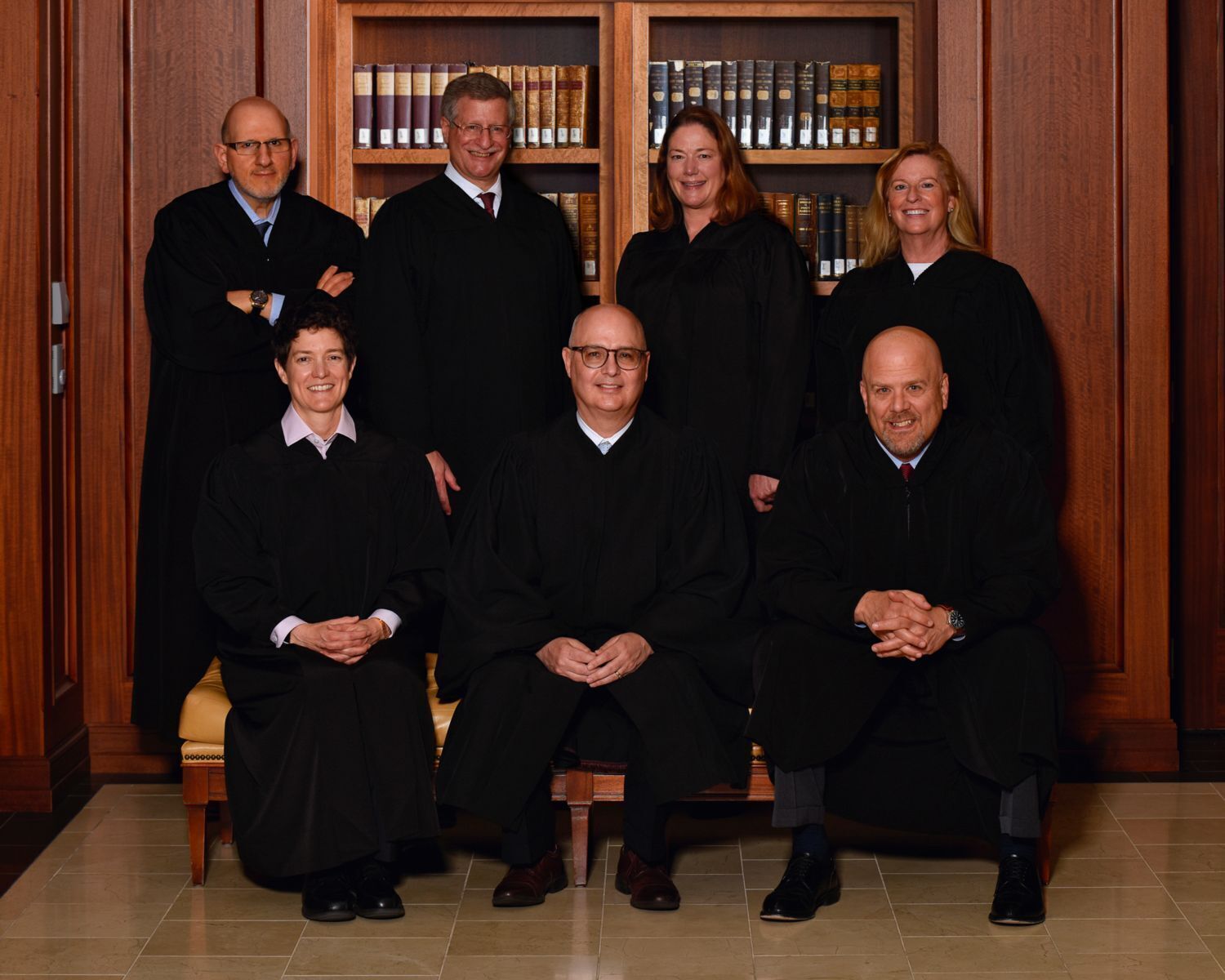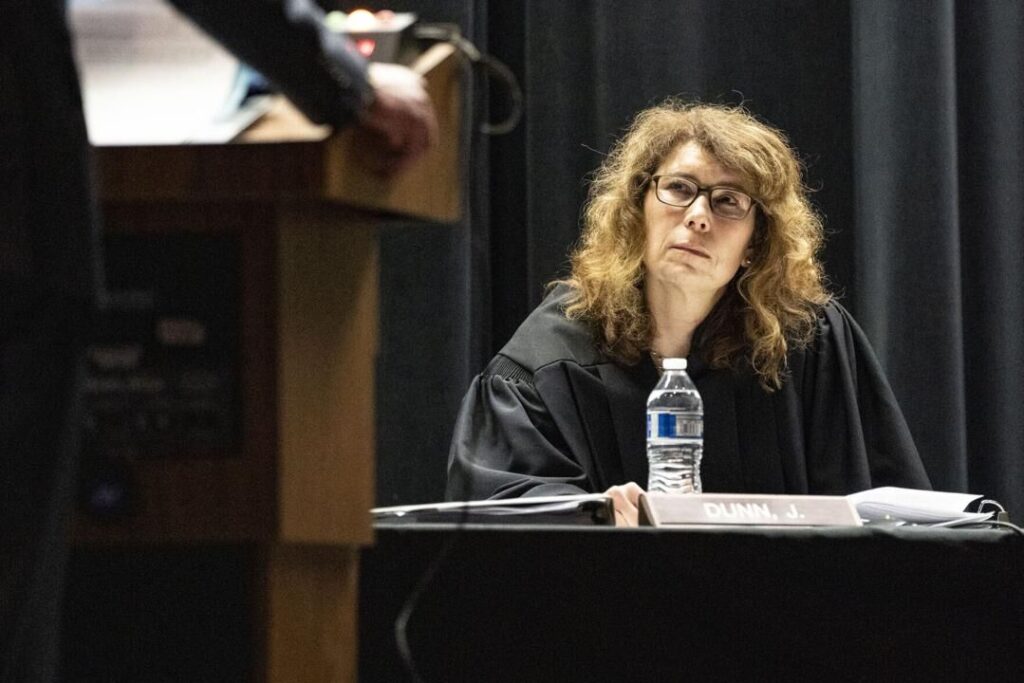State Supreme Court agrees to hear El Paso County child welfare case

The Colorado Supreme Court will review whether a trial court judge in El Paso County had the ability to terminate a mother and father’s parental rights, even though they and their child had moved out of state.
The justices agreed in late April to hear the case of E.W., who was two years old in July 2020 when a judge ended the child’s legal relationship with the parents. The El Paso County Department of Human Services initiated the proceedings, alleging the parents had a history of substance abuse and mental health problems and that the home was unsanitary.
At the time of the termination order, E.W. had been placed into custody in Montana, and the parents had also moved there. Neither of the parties had lived in Colorado for at least nine months.
The mother and father appealed the termination order, arguing that the El Paso County court had no jurisdiction under the Uniform Child-Custody Jurisdiction and Enforcement Act. All states but Massachusetts have adopted the UCCJEA, whose purpose is to avoid jurisdictional confusion in child custody cases.
Under the law, Colorado courts can make an “initial child-custody determination” if Colorado is the child’s home state, or was the home state within 182 days before the proceedings started. Courts that initiate the welfare proceedings generally maintain ongoing jurisdiction.
E.W.’s parents did not dispute that framework. Instead, they argued that the El Paso County court lost its jurisdiction before the termination decision because at that point, Montana was E.W.’s home state. A three-judge panel of the state’s Court of Appeals disagreed in May 2021 that Montana needed to take over the case after everyone involved moved away from Colorado.
“This is because losing continuing jurisdiction also requires another state to attempt to acquire jurisdiction from the Colorado court,” wrote Judge Craig R. Welling for the panel. “In other words, this was not a case where the Colorado court and the Montana court were trying to simultaneously exercise jurisdiction with regard to the child.”
The Supreme Court will consider whether the UCCJEA, as the appellate panel believed, maintained the trial court’s jurisdiction in E.W.’s case. The justices will also examine whether another legal basis existed for the termination decision through the Interstate Compact on the Placement of Children.
The case is People in the Interest of E.W.
Although it takes the agreement of three of the seven Supreme Court justices to grant a petition for appeal, the court recently declined to hear three other cases that grabbed the interest of two members.
Two appeals out of El Paso County questioned how trial court judges should have handled narcotics evidence directly after voters approved Amendment 64 in 2012, which authorized adults to possess up to one ounce of marijuana.
In the 2019 decision of People v. McKnight, the state Supreme Court ruled, 4-3, that because drug-detection dogs trained to sniff for marijuana would necessarily uncover legal activity in a post-2012 search, police need probable cause of a crime before deploying marijuana-trained dogs.
Matt William Snodgrass was arrested two years before the McKnight decision. After determining that Snodgrass had an active arrest warrant, an officer searched him and found a legal amount of marijuana in his pocket and an empty cannabis container in his car door. Another Fountain officer deployed her drug-detection dog, which was trained to sniff for marijuana and other narcotics. The dog ended up uncovering methamphetamine in Snodgrass’ vehicle.
Under the Fourth Amendment, police searches generally require warrants based on probable cause. The consequence for unconstitutional searches is to suppress evidence from being used at trial. In Snodgrass’ case, an El Paso County judge declined to suppress the narcotics evidence, believing police acted lawfully.
In January of this year, a Court of Appeals panel reversed that decision by 2-1. The majority agreed that the dog sniff of Snodgrass’ car amounted to a search because of the possibility of detecting legal marijuana possession. Officers did not have probable cause of a crime at the time they deployed the dog, wrote Judge Anthony J. Navarro in overturning the convictions.
Answering whether the police nonetheless acted with good faith because the McKnight case had not yet been decided, Navarro said no.
“Because no binding precedent had approved the police conduct at issue here, we cannot say that the police acted in objectively reasonable reliance on such precedent,” he wrote for himself and Judge Neeti Vasant Pawar.
Judge Matthew D. Grove dissented. While he also felt police had no probable cause for the dog-sniff search, he would have found that the officers acted in good faith because courts had not yet directed any change in post-Amendment 64 behavior.
The Colorado Attorney General’s Office then appealed to the Supreme Court. The public defender’s office, representing Snodgrass, asked the justices to reject the government’s petition, asserting that there was no need for the high court to decide an issue that only existed during a narrow window between Amendment 64’s passage and the McKnight ruling.
Moreover, argued Deputy State Public Defender Kira L. Suyeishi, officers were “well aware – or should have been aware” that Amendment 64 changed the legal status of marijuana.
Justices William W. Hood III and Carlos A. Samour Jr. indicated they would have heard the government’s appeal. They also would have granted the related appeal of Anthony Phillip Restrepo, who was similarly convicted of drug-related crimes after Colorado Springs police used a marijuana-trained dog for a search without probable cause.
The cases are People v. Snodgrass and People v. Restrepo.
Finally, Hood and Samour again would have heard the government’s appeal in the Mesa County case of Jay Patrick Burkhart, who committed felony escape when he absconded from a community corrections facility and was apprehended in Texas.
Two weeks before he pleaded guilty, the governor signed legislation in 2020 that created a new misdemeanor crime of “unauthorized absence,” with a substantially lower sentence than for felony escape. Burkhart argued that the law should apply retroactively to him because his conviction was not yet final.
The Court of Appeals decided that the legislature had not explicitly intended for the law to apply only for future cases. It overturned Burkhart’s felony conviction and sentence, ordering a new sentencing for the unauthorized absence misdemeanor.
The attorney general’s office argued to the Supreme Court that the appellate panel’s decision amounted to not merely a “windfall” for Burkhart, but an injustice.
Hood and Samour would have accepted the case to decide whether the panel’s application of the 2020 law to Burkhart’s conviction was correct.
The case is People v. Burkhart.














